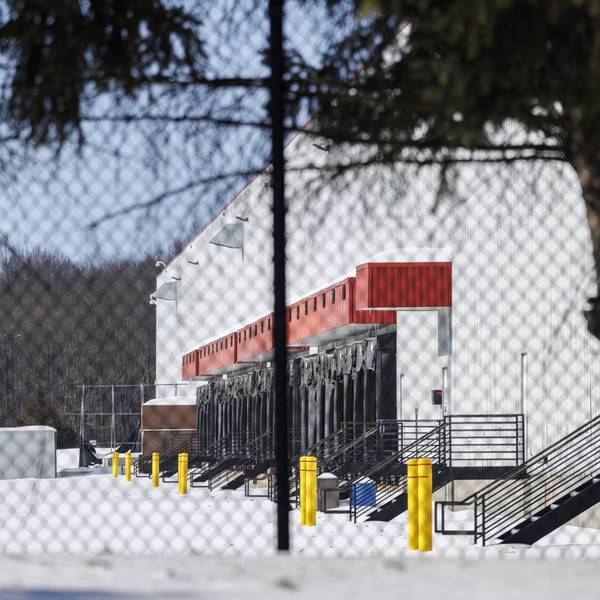Last week, when Trump federalized Washington, DC's police force and deployed the National Guard to occupy its streets, one of his main orders was to "end vagrancy" by destroying homeless encampments and arresting and forcibly relocating the people taking shelter there.
But according to an investigation published on Wednesday by Hanna Homestead of the National Priorities Project, in collaboration with The Intercept, deploying the National Guard and "getting rid of the slums" is costing far more than it would cost to simply provide housing to every homeless person in the city.
Governors from six US states have sent troops to Washington to help Trump's effort, swelling the ranks to nearly 2,100 who will soon be on patrol.
According to previous reporting, National Guard deployments cost the US government $530 per guard member each day. Using that figure, Homestead estimated that it would cost just over $1.1 million.
She added that "the number of troops will likely continue to grow. And with no deadline for the DC deployment, those costs could add up for months or even years."
According to the most recent data from the Department of Housing and Urban Development (HUD), there are about 5,600 people experiencing either sheltered and unsheltered homelessness in DC on a given night. Operating an affordable housing unit for each one of them, the data shows, costs about $45.44 per person, per day, on average in DC.
Providing affordable housing to every homeless person in DC would cost an estimated $255,166, which is 4.3 times less than the cost of Trump's military deployment.
"Taxpayers like you and me bear the cost of this cruel power grab," Homestead said. "This militarized spending comes at the expense of federal programs—like public housing—that actually do prevent crime and improve health and education outcomes."
Last week, White House Press Secretary Karoline Leavitt told reporters that over 70 encampments had been cleared since Trump's order to federalize the police. She also said that over 600 people had been arrested, though it was not specified how many of them were homeless.
Trump has sought to conflate homelessness with criminality, suggesting that the nation's capital had been "overtaken by violent gangs and bloodthirsty criminals, roving mobs of wild youth, drugged-out maniacs, and homeless people."
While his solution has been a show of military force against people with nowhere to go, a large body of research suggests that the approach of providing "Housing First"—meaning a stable place to stay with no preconditions for sobriety or treatment—reduces crime.
A 2021 study from UCLA found that providing homeless people with targeted housing assistance reduced the probability of committing a crime by 80%.
"Arresting or ticketing people for sleeping outside makes homelessness worse, wastes taxpayer money, and simply does not work," said Jesse Rabinowitz of the National Homelessness Law Center. "The solution to homelessness is housing and supports, not handcuffs and jails."
But in addition to a crackdown on the homeless, the Trump administration is also pushing to eliminate funds for public housing. The White House's proposed budget for fiscal year 2026 slashes funding for HUD's Continuum of Care program, which provided cities with funding for initiatives to house the homeless.
According to the National Alliance to End Homelessness, the proposal would effectively end funding of permanent supportive housing for 170,000 residents and potentially increase the number of homeless people in the US by 36%.
"Arresting people for no reason other than the fact that they have no home is inhumane and unjust," said Amber W. Harding, executive director of the Washington Legal Clinic for the Homeless. "It is particularly cruel to do so knowing that federal and local housing programs have been slashed and that DC does not have enough shelter beds."
"Fines, arrests, and encampment evictions make homelessness worse, further traumatize our homeless neighbors while disconnecting them from community and support," said Dana White, Director of Advocacy at Miriam's Kitchen, a DC-based homeless services organization. "If policing resolved homelessness, we wouldn't have homelessness here in DC or anywhere else in this country."




